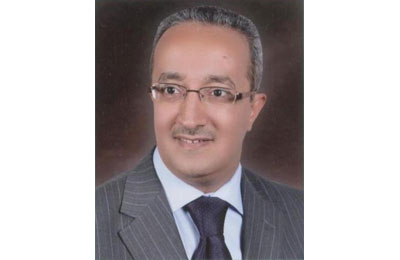
ME diabetes rate to double by 2030
Dubai, May 8, 2013
Middle East residents must adopt healthy lifestyles as the true cost of the rising diabetic burden is becoming apparent with the prevalence of the disease among people of all ages is expected to double by 2030, a leading cardiologist said.
Mohammed Al Kebsi, assistant professor of cardiovascular medicine at Sana’a University, consultant interventional cardiologist and scien6tific affair of the Yemeni Heart Association (YHA), said: “Healthy diets and regular adequate physical exercise are major factors in the promotion and maintenance of good health throughout the entire course of life, while controlling blood glucose is the cornerstone in managing high risk patients with diabetes.”
Al Kebsi will speak about coronary artery diseases and diabetes at the first International Cardiology Symposium and Diabetes Forum – A Global Agenda (ICS-13) set to take place from May 16 to 18 at the Dubai International Convention and Exhibition Centre.
“The inaugural symposium provides a gateway for the region's medical practitioners and companies to access the latest international expertise and knowledge in the prevention of diabetes and cardiovascular diseases, as well as showcase the latest achievements and medical findings in the area of diabetes prevention and management,” he said.
“The Middle East is heading in the right direction in managing and treating diabetes. But more effort is needed for the management of patients affected by it which will help prevent the onset of serious complications including strokes and heart attacks.”
“On a broader level governments and other stakeholders can play a vital role in shaping healthy environments and making healthier diet options affordable and easily accessible. It is also necessary to begin a national dialogue to raise awareness about this growing epidemic that is affecting so many people around the region.”
Al Kebsi highlighted the findings of a recent cross-sectional research conducted by Yemeni Professor Gunaid, in the capital city of Sana’a which suggested that diabetes epidemiology is increasing in Yemen, especially in urban communities with people under the age of 40, who are most at risk of being diagnosed with Type II diabetes. The prevalence of obesity had a female predominance which appeared to be relatively lower than other countries in the region.
“The issues raised in Yemen are likely to reflect those in the wider Middle East,” Al Kebsi said. “The results obtained from this study indicate that diabetes and other cardiovascular risk factors are already a significant public health problem among adult population in Yemen, with the prevalence increasing with advancing age.
“Diabetes needs to be addressed effectively and while new treatments continue to be developed, there is still scope of improvement, particularly in the Middle East. The International Cardiology Symposium and Diabetes Forum will allow us to engage with healthcare professionals from around the world and inform the public about the latest medical developments which will help in preventing this disease.”
Held under the patronage of Sheikh Hamdan Bin Rashid Al Maktoum, the Deputy Ruler of Dubai and UAE Minister of Finance and Industry, ICS-13 is endorsed by the Government of Dubai, Dubai Health Authority and the Saudi Heart Association, and sponsored by Pfizer, Servier, Mantecorp Farmasa and Biolab.
The event is held under the auspices of the Emirates Cardiac Society, Emirates Diabetes Society, Brazilian Society of Cardiology, Brazilian Society of Diabetes, European Society of Cardiology and International Atherosclerosis Society and supported by the Dubai Convention and Events Bureau and Dubai Healthcare City. – TradeArabia News Service







